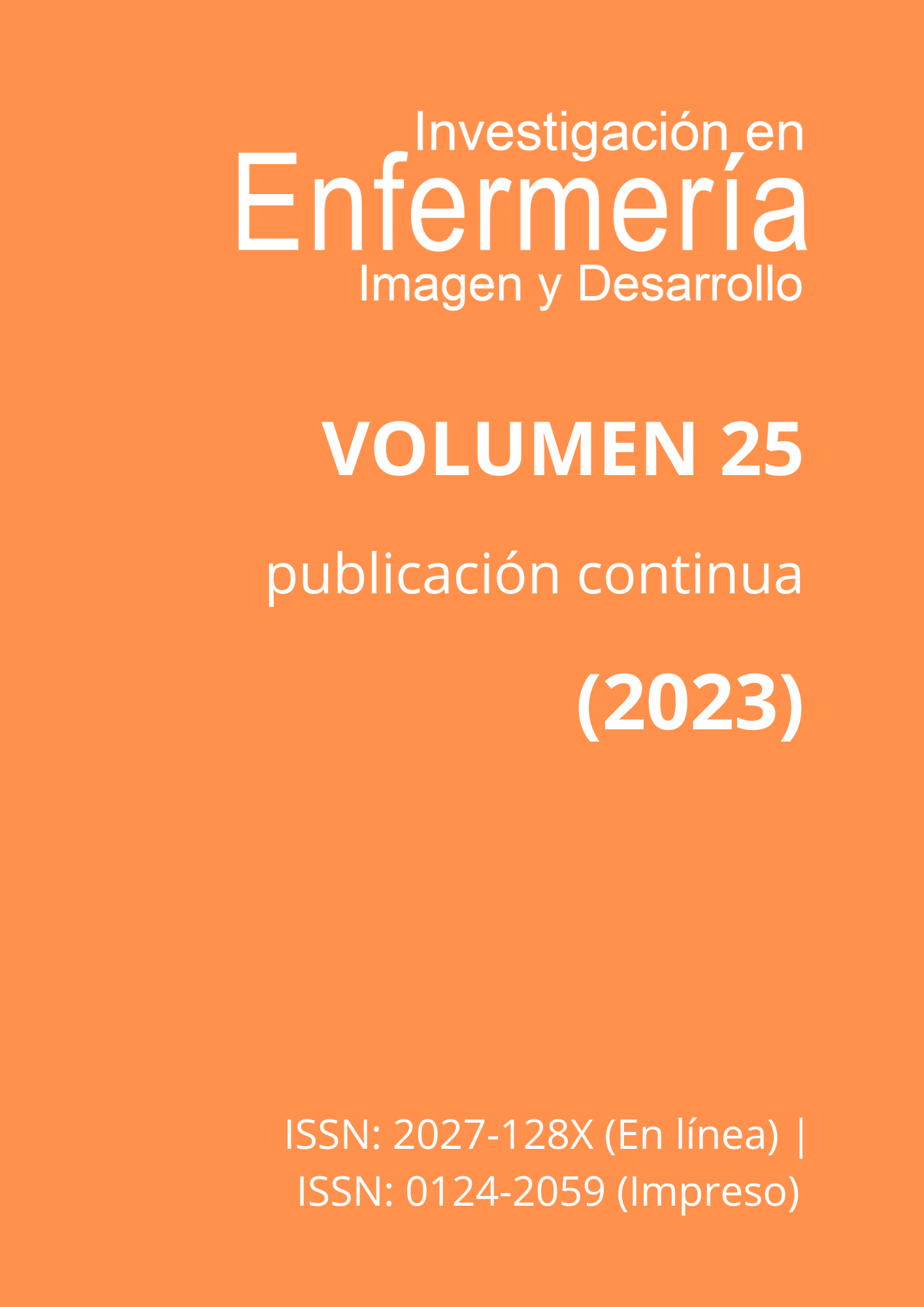Resumo
RESUMO
Objetivo: Descrever o processo de concepção, validação e implementação de uma intervenção de enfermagem personalizada para melhorar a adesão terapêutica em adultos com hipertensão arterial. Método: Estudo para desenvolvimento de intervenções segundo a proposta de Sidani & Braden, que inclui o desenho da intervenção, a operacionalização em manual de intervenção e o estudo piloto. Resultados: A intervenção baseada nos postulados da teoria salutogênica foi organizada em 4 sessões, uma semanal, com duração de 20 minutos cada, ministradas presencialmente e por telefone. Os especialistas (n=5) avaliaram a fidelidade teórica com relevância de 96%, viabilidade de 94% e clareza de 98%. Conclusão: Seguir as recomendações de Sidani & Braden permitiu o desenho de uma intervenção, com rigor metodológico adequado, baseado na utilização de uma teoria e evidências científicas que demonstram a fidelidade teórica e viabilidade da intervenção para melhorar a adesão terapêutica em adultos com hipertensão arterial.
Murray CJL, Aravkin AY, Zheng P, Abbafati C, Abbas KM, Abbasi-Kangevari M, et al. Global burden of 87 risk factors in 204 countries and territories, 1990–2019: a systematic analysis for the Global Burden of Disease Study 2019. Lancet. 2020;396(10258):1223–49.
GBD 2017 Risk Factor. Global, regional, and national comparative risk assessment of 84 behavioural, environmental and occupational, and metabolic risks or clusters of risks for 195 countries and territories, 1990-2017: a systematic analysis for the Global Burden of Disease Stu. Lancet. 2018;Nov 10;392((10159)):1923–94.
Mills KT, Bundy JD, Kelly TN, Reed JE, Kearney PM, Reynolds K, et al. Global Disparities of Hypertension Prevalence and Control: A Systematic Analysis of Population-based Studies from 90 Countries. Circulation. 2016;134(6):441–50.
Hill M, Miller N, Degeest S, Materson B, Black H, Izzo JJ, et al. Adherence and persistence with taking medication to control high blood pressure. J Am Soc Hypertens. 2011;5(1):56–63.
World Health Organization. Adherence to Long-Term Therapies. Evidence for action. [Internet]. 1st ed. WHO, editor. Geneva, Switzerland: World Health Organization; 2003. p. 209. Available from: http://apps.who.int/medicinedocs/pdf/s4883e/s4883e.pdf
Moons P, Norekval TM. Why some people do well and others don’t. The role of sense of coherence in disease adaptation. Eur J Cardiovasc Nurs. 2018;17(8):672–4.
Conn VS, Ruppar TM, Chase JD, Enriquez M, Cooper PS. Interventions to Improve Medication Adherence in Hypertensive Patients: Systematic Review and Meta-analysis. Curr Hypertens Rep. 2015;17(12:94).
Nieuwlaat R, Wilczynski N, Navarro T, Hobson N, Jeffery R, Keepanasseril A, et al. Interventions for enhancing medication adherence. Cochrane Database. 2014;20(11).
Kuntz JL, Safford MM, Singh JA, Phansalkar S, Slight SP, Her QL, et al. Patient-centered interventions to improve medication management and adherence: A qualitative review of research findings. Patient Educ Couns. 2014;97(3):310–26.
Esquivel N, Díaz LP, Cañon-Montañez W. Tailored interventions in people with cardiovascular disease: towards a nursing approach for individualized care. Rev Cuid. 2019;10(3):1–4.
Sidani S. Health Intervention Research. Understanding Research Design & Methods. United Kingdom: SAGE; 2015. 247 p.
Mittelmark MB, Sagy S, Eriksson M, Bauer GF, Pelikan JM, Lindström B, et al. The Handbook of Salutogenesis. 1st ed. Springer; 2016.
Esquivel N, Díaz L. Salutogénesis y salud cardiovascular en adultos: scoping review. Texto Context Enferm. 2020;29:1–15.
Whittemore R, Knafl K. The integrative review: updated methodology. J Adv Nurs. 2005;52(5).
Esquivel N, Díaz LP. Validity and Reliability of the Treatment Adherence Questionnaire for Patients with Hypertension. Investig y Educ en enfermería. 2019;37(3):99–112.
Antonovsky A. Unraveling the mystery of health: How people manage stress and stay well. 1st ed. Jossey-Bass., editor. 1987. 238 p.
Gwadry-Sridhar FH, Manias E, Lal L, Salas M, Hughes DA, Ratzki-Leewing A, et al. Impact of interventions on medication adherence and blood pressure control in patients with essential hypertension: A systematic review by the ISPOR medication adherence and persistence special interest group. Value Heal [Internet]. 2013;16(5):863–71. Available from: http://dx.doi.org/10.1016/j.jval.2013.03.1631
Morrissey EC, Durand H, Nieuwlaat R, Navarro T, Haynes RB, Walsh JC, et al. Effectiveness and content analysis of interventions to enhance medication adherence and blood pressure control in hypertension: A systematic review and meta-analysis. Psychol Heal. 2017;32(10):1195–232.
Hoffmann TC, Glasziou PP, Boutron I, Milne R, Perera R, Moher D. Better reporting of interventions: template for intervention description and replication (TIDieR) checklist and guide. BMJ. 2014;348(g1687).
Bauer GF, Roy M, Bakibinga P, Contu P, Downe S, Eriksson M, et al. Future directions for the concept of salutogenesis: a position article. Health Promot Int. 2019;1–9.
Drevenhorn E. A Proposed Middle-Range Theory of Nursing in Hypertension Care. Int J Hypertens. 2018;2018.
Lu Z, Cao S, Chai Y, Liang Y, Bachmann M, Suhrcke M, et al. Effectiveness of interventions for hypertension care in the community a meta-analysis of controlled studies in China. BMC Health Serv Res. 2012;12:2–12.
Younas, A, Quennell S. Usefulness of nursing theory-guided practice: an integrative review. Scand J Caring Sci. 2019;33(3):540–55.
Friedman L, Furberg C, DeMets D, Reboussin D, Granger C. Fundamentals of clinical trials. Springer, editor. 2015.
Conn V, Rantz M, Wipke-Tevis D, Maas M. Designing effective nursing interventions. Res Nurs Heal. 2001;Oct;24(5):433–42.
Whittemore R, Grey M. The systematic development of nursing interventions. J Nurs Sch. 2002;34(2):115–20.
van Meijel B, Gamel C, van Swieten-Duijfjes, B Grypdonck M. The development of evidence-based nursing interventions: methodological considerations. J Adv Nurs. 2004;Oct; 48(1):84–92.
Campbell M, Fitzpatrick R, Haines A, Louise K A, Sandercock P, Spiegelhalter D, et al. Framework for design and evaluation of complex interventions to improve health. Br Med J. 2000;321(7262):694–6.
Corry M, Clarke M, While AE, Lalolr J. Developing complex interventions for nursing: a critical review of key guidelines. J Clin Nurs. 2013;Sep;22(17–18):2366–86.
Craig P, Dieppe P, Macintyre S, Mitchie S, Nazareth I, Petticrew M. Developing and evaluating complex interventions: The new Medical Research Council guidance. Bmj. 2008;337:a1655.

Este trabalho está licenciado sob uma licença Creative Commons Attribution 4.0 International License.
Copyright (c) 2023 Investigación en Enfermería: Imagen y Desarrollo


